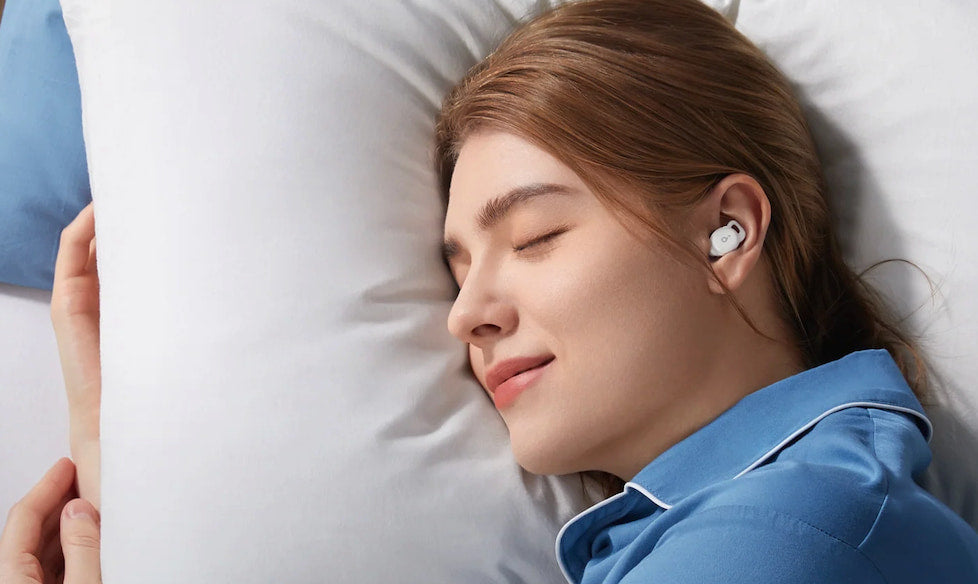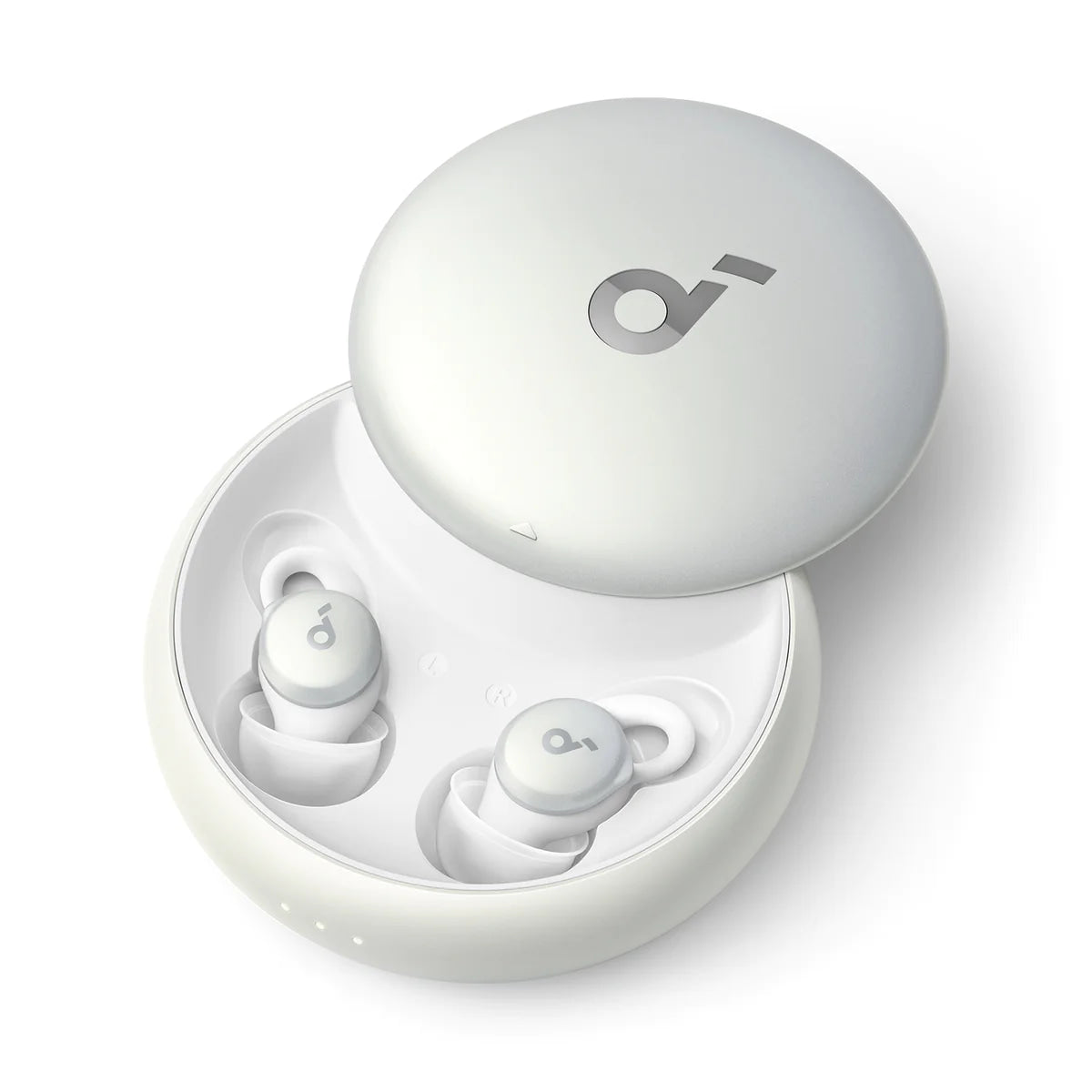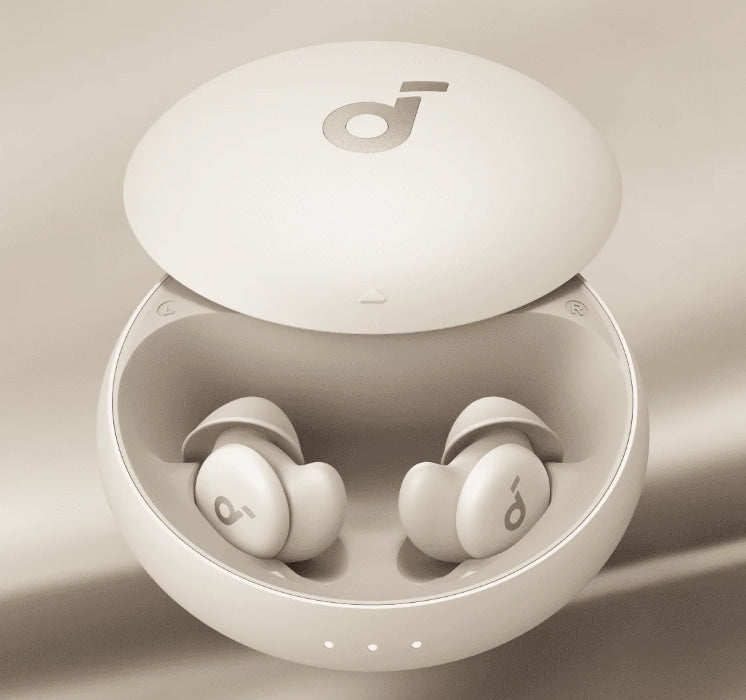
How to Block Out Noise When Sleeping: Tips for Noise-Free Nights
Share
A good night's sleep is essential for our overall health and well-being. It's during sleep that our bodies repair and regenerate tissues, consolidate memories, and regulate hormones. Unfortunately, many factors can disrupt our sleep, with noise being a common culprit. Traffic noise from busy streets, snoring from a partner or roommate, or loud neighbors can all prevent us from getting the rest we need.
Fortunately, there are effective strategies and tools available to help us create a sanctuary of silence. In this comprehensive guide, we'll provide you with 10 practical tips on how to block out noise when sleeping. From earplugs and noise-blocking earbuds to meditation practice, read on and learn the secrets to undisturbed sleep!

How Noise at Night Affects Your Sleep?
Nighttime noise, from urban clamor to the buzz of gadgets, hinders our ability to fall asleep and leads to frequent awakenings, preventing us from reaching the deep, restorative stages of sleep essential for mental and physical rejuvenation. Let's take a closer look:
- Breaking Down Sleep Cycles: Our sleep is composed of cycles, including lighter stages and deep REM sleep. Noise can cause micro-awakenings, often so brief we don't remember them, but they disrupt these cycles, reducing the quality of our rest.
- Stress Response: Unexpected noises can trigger a stress response in the body, releasing cortisol. This "fight or flight" hormone is great for daytime challenges but not so much for a restful night. Over time, chronic sleep disruption may contribute to the development of mood disorders, including depression and anxiety.
- Heart Rate Spike: Sudden noises can cause an involuntary spike in heart rate, making it harder to reach or maintain a deep sleep state. This increased heart rate can have deleterious effects on health over time, contributing to chronic conditions such as heart disease.
10 Tips for Blocking Noise While Sleeping
Now, let's dive into 10 specific strategies on how to block noise while sleeping:
Wear Earplugs
Wearing earplugs to bed is a simple and effective way to block out noise while sleeping. Foam earplugs can reduce both external and internal noises, helping you drift off to sleep more easily. They're also handy for sleeping in noisy environments like airplanes or cars. However, it's important to replace them regularly to prevent ear infections from dirty earplugs. If you prefer silicone earplugs, ensure you clean them before each use.
Invest in Noise-Canceling Earbuds
For those who find traditional earplugs uncomfortable or insufficient, noise cancelling earbuds can be an ideal choice, utilizing noise cancellation technologies to effectively block out unwanted noise. Look for sleep earbuds that are specifically designed to provide comfort while sleeping with earbuds.
Among the myriad options available, soundcore's Sleep A10 and A20 models are comfortable earbuds for sleeping that stand out for their sleep-friendly designs and effective noise isolation.

The soundcore Sleep A10 earbuds enhance your sleep with advanced sleep monitoring, providing insights into your rest quality. They're designed for comfort, especially for side sleepers, thanks to their slim, lightweight build. With 4-point noise masking technology, they ensure a peaceful environment by blocking external sounds effectively. These small earbuds also feature customized dynamic drivers for a softer, sleep-optimized white noise experience. Bluetooth 5.2 compatibility allows for stable streaming from your favorite apps, supported by the soundcore app's extensive white noise and ambient sound library.
On the other hand, the soundcore Sleep A20 earbuds are one of the best noise cancelling earbuds for sleeping with their innovative noise-masking technology. They're built for ultimate comfort with Twin-Seal ear tips and an ergonomic, pressure-free design, ideal even for side sleepers. The A20 model provides 14 hours of continuous playback in Sleep mode, with a case that extends usage up to 80 hours. It also features a selection of white noise solutions to block common disturbances and an ultra-stable Bluetooth 5.3 connection for streaming. Enhanced with sleep monitoring, these mini earbuds track your sleep duration and position, giving you a visual report to improve your sleep patterns.

Hang Heavy Curtains
Heavy blackout curtains not only block out light but also help reduce noise from outside. They're a cost-effective solution compared to soundproofing windows or doors. By eliminating outside noise and light, blackout curtains create a more conducive sleep environment. This can help improve your sleep quality by preventing disturbances from external sources.
Use White Noise
White noise machines can create a soothing background sound that masks other noises. These machines are designed to help you relax and fall asleep faster, even in noisy environments. They offer a variety of sound options to suit your preferences. Whether you prefer the sound of rain, ocean waves, or a simple hum, white noise machines can help you achieve a more restful sleep.
Get a Thicker Bedroom Door
A thin, flimsy door can let in a surprising amount of noise from other parts of your home. Upgrading to a thicker, solid wood door can help block out unwanted noise and create a quieter sleep environment. This simple upgrade can make a big difference in reducing disturbances from household activities or outside noise.
Fill the Space Underneath Your Door
Even with a thick door, sound can still seep in through the gap underneath. Foam door sweeps can be used to block this gap and prevent noise from entering your room. Alternatively, you can use a towel or pillow to fill the space temporarily. This simple solution can help reduce noise from outside your bedroom.
Add Carpeting or Rugs to the Floor
Floor coverings like carpets or rugs can help reduce noise by absorbing sound waves. Thicker carpets provide better sound insulation and can make a significant difference in reducing noise levels in your bedroom. Additionally, rugs can help reduce echoes, making your bedroom a quieter and more peaceful space for sleeping.
Rearrange Your Bedroom
If your bed is near a noisy area, consider rearranging your bedroom to create more distance between you and the source of noise. Moving your bed away from thin walls or neighboring apartments can help reduce the impact of noise on your sleep. This simple adjustment can make a noticeable difference in your ability to sleep soundly.
Practice Meditation
Meditation can help calm your mind and body, making it easier to ignore external noise and fall asleep. By focusing inward, you can train your mind on how to sleep with noise and promote relaxation. Incorporating meditation into your bedtime routine can improve your sleep quality, even in noisy environments.
Wear Yourself Out
Regular exercise and exposure to natural light during the day can help regulate your sleep-wake cycle and make you more tired at night. Being physically tired can help you fall asleep faster and sleep more deeply, even if there is some noise in the background. Prioritizing regular exercise and exposure to natural light can improve your overall sleep quality, making it easier to cope with noise disturbances.
FAQ
Can noise cancelling earbuds block snoring?
Yes. Noise-canceling earbuds are the best earbuds for snoring. These earbuds work by creating anti-noise signals that cancel out external sounds, including snoring. For optimal results, it's recommended to use earbuds that offer active noise cancellation combined with a comfortable fit to ensure they stay in place throughout the night.
Are noise cancelling earbuds good for sleeping?
Yes, noise-cancelling earbuds can be very good for sleeping, especially for those who live in noisy environments or are particularly sensitive to sound while trying to fall asleep. They work by actively blocking out external noise, creating a quieter and more serene environment conducive to sleep. It's important to choose a pair that's designed for sleep, ensuring they stay comfortable throughout the night and don't cause any discomfort or ear pain.
Why am I so sensitive to noise when sleeping?
Sensitivity to noise while sleeping, or hyperacusis, can be due to various factors. Your brain's inability to tune out sounds during sleep could be one reason, as some people's brains are more alert to noises. It might also be linked to stress or anxiety, where your body is in a heightened state of alertness, making you more susceptible to being woken by noises. Additionally, lifestyle factors, such as irregular sleep schedules or lack of a bedtime routine, can also make you more sensitive to noise.
Conclusion
Achieving a peaceful night's sleep free from disruptive noise is essential for our overall health and well-being. Whether it's using earplugs, investing in noise-cancelling sleep earbuds like the soundcore Sleep A20, or making simple adjustments to your bedroom environment, there are many effective strategies on how to block out noise when sleeping. By taking proactive steps to create a quieter sleep environment, you can enjoy the restful sleep you deserve. Remember, a good night's sleep is within reach – all you need is the right approach to blocking out noise and creating a peaceful sleep environment.